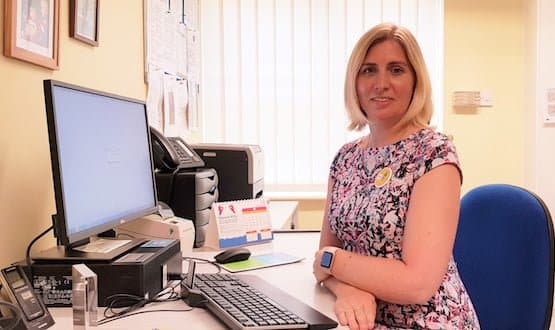As the national effort to implement wifi across NHS settings in England continues, Dr Kirsty Gillgrass of Crystal Peaks Medical Centre reports related improvements for staff and patients alike.
Last month, we became one of the latest practices to go live with free NHS WiFi, as the national NHS WiFi programme confirmed that it has now rolled out to three quarters of GP practices in England.
I’m told the remaining 25% are expected to follow soon, giving more than 58 million patients across 7,686 GP practices access to free NHS WiFi. This will enable them to link in with local health clinics and services, and pave the way for future developments in digital patient care.
Change in our practice
Crystal Peaks Medical Centre sits in a busy retail park. We have five GP partners, a large multidisciplinary primary care team and are a training practice. Approximately seven thousand patients are registered with us and they come from a wide range of socioeconomic backgrounds.
We’re already seeing benefits both for patients and staff from implementing NHS WiFi. For patients, there is a separate wifi service, for use free of charge in their GP’s waiting room, and accessible via a smartphone or tablet. They can use the service to access and download health apps, browse the internet, and look up health and care information.
For clinicians and practice staff, NHS WiFi provides us with an efficient, reliable and secure platform that enables us to offer and use the latest digital health and care services. Resident staff, GPs and visiting clinicians all have access to secure wifi, allowing us to access information anywhere in the surgery.
We went live with NHS WiFi on 10 July and it is already being used in consultations, waiting areas and for a range of health services. We were previously paying for a mobile wifi connection, and so we were very keen to get connected with NHS WiFi.
It is already enabling better mobile working. For instance, I have monthly liaison meetings with safeguarding children staff who work remotely, often via laptops with dongles that are not reliable. With NHS WiFi, information can be shared safely and the meetings are much more efficient. This results in better care for our most vulnerable patients and more time for staff to spend on frontline care.
Mobile tools
The benefits for doctors during consultation include being able to use mobile technology as part of care delivery, and the ability to access clinical tools, risk calculators and electronic versions of the British National Formulary (BNF) and National Institute for Health and Care Excellence (NICE) guidelines faster than on a desktop computer.
In the waiting room, access to wifi has been used in different ways, including to reduce anxiety for patients who might have to wait longer for appointments. I have also used YouTube to show videos to anxious children during their appointment.
Bolstering digital inclusion
Having NHS WiFi will open up opportunities for the practice that will benefit patients. We, along with other practices in our neighbourhood, are hoping to buy some mobile devices for staff with digital inclusion funding. We would use these to encourage patients to sign up to GP online services, book appointments online, order prescriptions, view patient electronic record and access other digital health services.
The practice has moved to a neighbourhood model, and we intend to conduct remote tutorials with GP registrars in other practices. We will be able to connect over wifi using software such as Adobe Connect. As a GP trainer, having wifi also means that GP registrars and trainers can access portfolios and exam preparation resources quickly on our own technology without using our mobile data.
These are just some of the benefits of NHS WiFI. And since it’s free, the money we were spending ourselves on wifi can be redirected into other essential services. Over time, we hope to see more benefits from the move towards a more digital patient care services and believe NHS WiFi will play a key role in that transition.
Dr Kirsty Gillgrass is GP partner and GP trainer at Crystal Peaks Medical Centre, a governing board member at Sheffield CCG, and senior clinical teacher in the academic unit of primary care at the University of Sheffield.


17 August 2018 @ 16:17
Fantastic!! Really fantastic to embrace the possibilities.